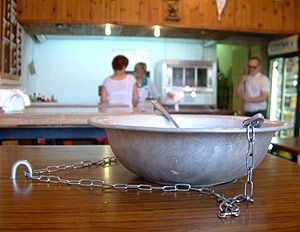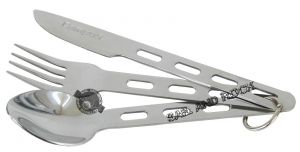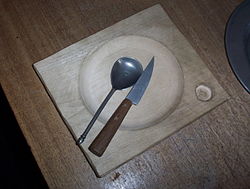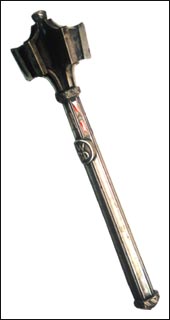News /
Lithuanian ambassador 'Poles not loyal citizens' [63]
I would advice you to stop repeating the same erroneous tune over and over again and check some simple facts. I already posted some stories about Puńsk (Punskas) and their educational facilities at several levels. The implication was that the kids learned from the Lithuanian-language books, and they were taught by Lithuanian teachers in their own Lithuanian language.
In some previous posts you did not deny it, but you only whined about the fact the the textbooks were pre-approved by Polish authorities, while the Lithuanian authorities just paid for Polish textbooks published by Poles. Now you changed your tune and say - <<Lithuanian children in Poland are forced to learn from Polish books>>.
All you are doing is repeating certain propaganda from certain Lithuanian circles, similar to this:
Lithuanian pupils in Poland are forced to be translators starting from the age of seven: they study from Polish language textbooks because the Polish state does not print textbooks in Lithuanian, while the Lithuanian state does print textbooks in Russian and Polish.
baltictimes.com/news/articles/28383/
Do not tell me that you really believe all that bullshit, do you?
Now read this - and I expect a profuse "thank you" from you for the time I had to spend on this issue to correct your errors.
Item number 1A significant role for the small town, which is Puńsk, plays Publishing House "Ausra". It prepares and publishes the Lithuanian school textbooks for the needs of local educational institutions, and also publishes other books in both Lithuanian and Polish. In accordance to its technical and financial means it supports tourism and cultural activities through publishing interesting brochures, folders, postcards, advertising, etc., and posting information on web servers.
The Puńsk high rank cultural position is due to existence of several Lithuanian magazines, "Saltinis" (journal of the Association of St. Casimir in Sejny), "Ausra" (biweekly of Polish Lithuanians), "Ausrele" (monthly magazine for children), "Suvalkietis" (quarterly of Lithuanians from Suwalki region). A coffee shop at the Ausra Publishing House sells not only local publications, but also books and recorded music from Lithuania.
Books published by the Publishing House "Aušra" in the years 1992 - 2003:
Check it out - about 60 positions, Lithuanian titles, Polish summaries.
punskas.pl/leidykla/ksiazki.html
Wydawnictwo "Aušra" dysponuje obecnie następującymi podręcznikami, książkami pomocniczymi i programami nauczania dla szkoły podstawowej i gimnazjum:
Publishing House "Aušra" now has the following manuals, books, teaching aids and programs for primary and junior high:
The detailed list is here:
punskas.pl/leidykla/podreczniki.html
Here at the highlights of their offer:
Grade 1-3: Integrated teachingAll written by the same Lithuanian authors G. Karaneckienė and I. Berneckaitė . Includes textbooks, exercise books and teaching instructions for reading, writing and mathematics, in both languages.
Grade 4-6. Lithuanian onlyN. Grigutienė Motina. Kalba. Tėvynė. Podręcznik języka litewskiego. Lithuanian Language Textbook. (one for each grade, same author)
Instructional Guide to Teaching Lithuanian, for grades 5 and 6, including CDs and big didactic boards
Gymnasium - Junior High SchoolTextbooks for grades 1-3, plus exercise books and didactic materials for teachers
Polish-Lithuanian terminological dictionaries:
+ mathematics
+ geography
+ art
+ physics
+ chemistry
+ biology
+ programming
Liceum - High School. All Lithuanian+ Culture, rhetorics, communication
+ Development of language and history. Written and spoken language. Dialects
+ Lithuanian language. Style. Style measures. Style. Language stylization. Style of interaction. Text styles and genres. Modern developments in the Lithuanian language.
All of these books are provided to schools free of charge upon presentation of a written order on selected items certified by the Board of Education in Suwalki.(...)
School and Pedagogic Publishing House
through Publishing House "Ausra"
Orders for Big-boards must also be confirmed by the Board of Trustees
Information
Editors of Books and Textbooks
Tel: (087) 5161410
Publishing House "Aušra" Sp. o.o. Mickiewicza 23, 16-515 Punsk
cond. Romuald Witkowski, Deputy Director. Sygit Birgiel editor
tel: 87 5161410 87 5161049; 87 5 161517
Fax: 87 5161049, 87 5161812
REGON 790127214
NIP PL 844-000-82-28
Bank PKO SA O / Suwalki No. 91124018481787000020757256
Item number 2This offer is a bit outdated. The list of textbooks as recent as 2010 is shown at the bottom of this page: kjoib.uw.edu.pl/publikacje_nijola_birgiel.pdf
Item number 3Ministry of Interior and Administration, Minutes of the August meeting of Committee on Education of National Minorities
Sejny, 2 March 2005
The minutes deal with the following subjects:
1. School network and funding of education of the Lithuanian minority in Poland
2. Premises for the high school in Punsk and primary and secondary in Sejny
3. Implementation of publishing plans and curricula and publishing projects for 2005
4. Tests and examinations in the Lithuanian language
I'll just translate one little fragment:
In the field of publishing - Ministry of Education and Science continued fruitful cooperation with the publishing house "Aušra" in Puńsk. In 2004, MENS spent 374 200 PLN on Lithuanian textbooks. They planned to spend 402, 650 PLN in 2005.
Again, there must be some current data available for 2010, for example. But I am not writing a dissertation I am just pointing out the obvious flaws in your statements about lack of Lithuanian textbooks in Poland.
Item number 4The list of textbooks and manuals approved for school use, intended for general education for national minorities and ethnic groups and communities using the regional language, taking into account the core curriculum specified in the Minister of National Education of 23 December 2008 on the core curriculum of preschool education and training general in particular types of schools
(Journal of Laws of 2009 No. 4, pos. 17))
Lithuanian: altogether 7 series of textbooks, approved by MEN, published by Ausra
(as specified under item number 1)
reformaprogramowa.men.gov.pl/nowepodreczniki/wykaz_dopuszczone_lista2.php
 PolishForums LIVE / Archives [3]
PolishForums LIVE / Archives [3]




